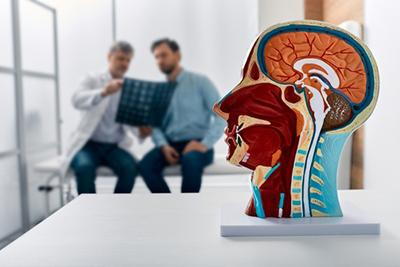Neurologists, commonly known as brain doctors, are indispensable to the healthcare system due to their specialized expertise in diagnosing, treating, and managing a wide range of neurological disorders. Their role extends beyond merely addressing complex medical issues; they play a critical part in improving quality of life, advancing medical research, and providing comprehensive care for conditions that affect the brain, spinal cord, and peripheral nerves. This article explores the vital contributions of neurologists and highlights why their work is crucial for overall health and well-being.
The Complexity of Neurological Disorders
The nervous system, comprising the brain, spinal cord, and peripheral nerves, regulates nearly every function in the body, including movement, sensation, cognition, and autonomic processes. Neurological disorders can disrupt these functions in profound ways, manifesting as cognitive decline, motor impairment, sensory abnormalities, or behavioral changes. Conditions like Alzheimer’s disease, Parkinson’s disease, epilepsy, and multiple sclerosis each present unique challenges and require specialized knowledge and skills to manage effectively.
Neurologists are trained to navigate this complexity, using their expertise to unravel the symptoms and underlying causes of neurological disorders. Their ability to diagnose accurately is crucial for developing effective treatment plans and improving patient outcomes.
Diagnostic Expertise
Diagnosing neurological conditions often involves interpreting a wide range of symptoms that can overlap or evolve over time. Neurologists employ a combination of detailed patient history, physical examination, and advanced diagnostic tools to pinpoint the exact nature of a disorder.
Neuroimaging: Techniques such as MRI, CT scans, and PET scans provide detailed images of the brain and spinal cord, helping neurologists identify structural abnormalities, tumors, or lesions associated with conditions like stroke, multiple sclerosis, or neurodegenerative diseases. Functional imaging, such as fMRI, allows for the observation of brain activity and aids in the assessment of cognitive functions and pre-surgical planning.
Electrophysiological Studies: EEG (electroencephalography) is used to record electrical activity in the brain and is essential for diagnosing epilepsy and other seizure disorders. Nerve conduction studies and electromyography (EMG) assess the function of peripheral nerves and muscles, aiding in the diagnosis of conditions like neuropathies and myopathies.
Cerebrospinal Fluid Analysis: Lumbar puncture enables the collection of cerebrospinal fluid for analysis, which can reveal information about infections, inflammatory conditions, and other central nervous system abnormalities.
Treatment and Management
Once a diagnosis is made, neurologists develop comprehensive treatment plans tailored to the individual patient. Their approach often involves a combination of medications, lifestyle modifications, rehabilitation, and, in some cases, surgical interventions.
Medications: Neurologists prescribe various medications to manage symptoms, modify disease progression, or address underlying causes. For example, antiepileptic drugs (AEDs) are used to control seizures in epilepsy, while medications such as levodopa help manage motor symptoms in Parkinson’s disease. In multiple sclerosis, disease-modifying therapies (DMTs) can reduce relapse rates and slow disease progression.
Lifestyle and Supportive Care: Neurologists often recommend lifestyle changes to improve overall health and manage symptoms. This may include dietary modifications, physical exercise, and stress management techniques. Supportive care strategies, such as cognitive therapy and counseling, are also important for addressing the psychological and emotional aspects of chronic neurological conditions.
Rehabilitation: For patients recovering from neurological events such as strokes or traumatic brain injuries, neurologists work with rehabilitation specialists to develop personalized care plans. Rehabilitation may include physical therapy, occupational therapy, and speech therapy to help patients regain lost functions and adapt to any long-term changes.
Surgical Interventions: In certain cases, surgical options may be necessary. Deep brain stimulation (DBS) can be used to treat movement disorders, and surgical resection may be performed to remove tumors or alleviate chronic pain.
Advancing Research and Innovation
Neurologists are not only involved in direct patient care but also play a critical role in advancing the field through research and innovation. Their work contributes to the development of new treatments, diagnostic tools, and technologies that improve patient care and outcomes.
Clinical Trials: Neurologists participate in clinical trials to evaluate new therapies and interventions. Their involvement helps bring cutting-edge treatments to patients and advances our understanding of neurological diseases.
Innovations in Neurotechnology: Advances in neuroimaging, neurogenetics, and neurostimulation are expanding our knowledge of the brain and offering new therapeutic options. Innovations such as wearable neurotechnology and artificial intelligence are enhancing diagnostic accuracy and personalizing treatment approaches.
Conclusion
Neurologists are vital to the healthcare system due to their specialized knowledge and expertise in managing complex neurological disorders. Their contributions extend beyond diagnosing and treating conditions to include advancing medical research, improving patient outcomes, and providing comprehensive care. As the field of neurology continues to evolve, the work of these dedicated specialists remains essential in addressing the intricate challenges of brain health and enhancing the quality of life for individuals affected by neurological conditions.

